Bonnie Lynn Bassler is an American molecular biologist; the Squibb Professor in Molecular Biology and chair of the Department of Molecular Biology at Princeton University; and a Howard Hughes Medical Institute Investigator. She has researched cell-to-cell chemical communication in bacteria and discovered key insights into the mechanism by which bacteria communicate, known as quorum sensing. She has contributed to the idea that disruption of chemical signaling can be used as an antimicrobial therapy.

Bruce Michael Alberts is an American biochemist and the Chancellor’s Leadership Chair in Biochemistry and Biophysics for Science and Education, emeritus at the University of California, San Francisco. He has done important work studying the protein complexes which enable chromosome replication when living cells divide. He is known as an original author of the "canonical, influential, and best-selling scientific textbook" Molecular Biology of the Cell, and as Editor-in-Chief of Science magazine.
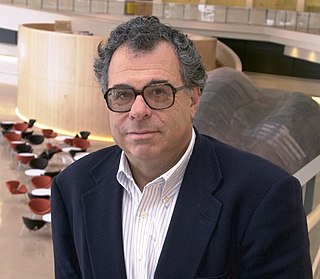
David Botstein is an American biologist serving as the chief scientific officer of Calico. He served as the director of the Lewis-Sigler Institute for Integrative Genomics at Princeton University from 2003 to 2013, where he remains an Anthony B. Evnin Professor of Genomics.
Charles Thomas Caskey, also known as C. Thomas Caskey, was an American internist who has been a medical Geneticist and biomedical researcher and entrepreneur. He was a Professor of Molecular and Human Genetics at Baylor College of Medicine, and served as editor of the Annual Review of Medicine from 2001 to 2019. He was a member of the editorial boards of the Proceedings of the National Academy of Sciences, Science, the Encyclopedia of Molecular Medicine and numerous other medical and scientific journals.
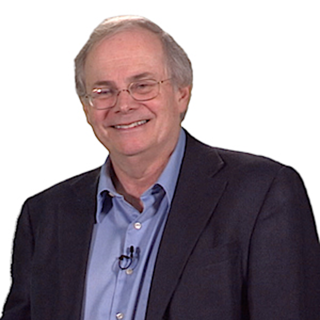
Gregory A. Petsko is an American biochemist and member of the National Academy of Sciences, the National Academy of Medicine, the American Academy of Arts and Sciences, and the American Philosophical Society. He is currently Professor of Neurology at the Ann Romney Center for Neurologic Diseases at Harvard Medical School and Brigham and Women's Hospital. He formerly had an endowed professorship in Neurology and Neuroscience at Weill Cornell Medical College and is still an adjunct professor of Biomedical Engineering at Cornell University, and is also the Gyula and Katica Tauber Professor, Emeritus, in biochemistry and chemistry at Brandeis University.
Lynn William Enquist is professor emeritus in molecular biology at Princeton University, as well as founding editor of the journal Annual Review of Virology. His research focuses on neuroinvasive alpha-herpesviruses.
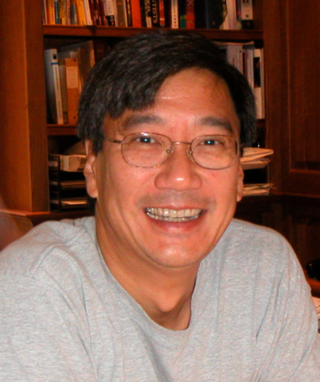
Peter S. Kim is an American scientist. He was president of Merck Research Laboratories (MRL) 2003–2013 and is currently Virginia & D.K. Ludwig Professor of Biochemistry at Stanford University, Institute Scholar at Stanford ChEM-H, and Lead Investigator of the Infectious Disease Initiative at the Chan Zuckerberg Biohub.
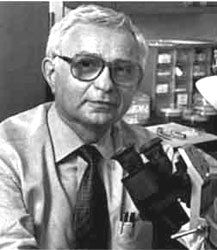
Bernard Roizman is an American scientist born in Romania. He is the Joseph Regenstein Distinguished Service Professor of Virology in the Departments of Microbiology and Molecular Genetics and Cell Biology at the University of Chicago.
Thomas Dean Pollard is a prominent educator, cell biologist and biophysicist whose research focuses on understanding cell motility through the study of actin filaments and myosin motors. He is Sterling Professor of Molecular, Cellular & Developmental Biology and a professor of cell biology and molecular biophysics & biochemistry at Yale University. He was dean of Yale's Graduate School of Arts and Sciences from 2010 to 2014, and president of the Salk Institute for Biological Studies from 1996 to 2001.

Harvey Franklin Lodish is a molecular and cell biologist, professor at the Massachusetts Institute of Technology (MIT), Founding Member of the Whitehead Institute for Biomedical Research, and lead author of the textbook Molecular Cell Biology. Lodish's research focused on cell surface proteins and other important areas at the interface between molecular cell biology and medicine.
Arnold Jay Levine, is an American molecular biologist. He was awarded the 1998 Louisa Gross Horwitz Prize for Biology or Biochemistry and was the first recipient of the Albany Medical Center Prize in Medicine and Biomedical Research in 2001 for his discovery of the tumor suppressor protein p53.
Thomas J. Kelly is an American cancer researcher whose work focuses on the molecular mechanisms of DNA replication. Kelly is director of the Sloan-Kettering Institute, the basic research arm of the Memorial Sloan-Kettering Cancer Center. He holds the Center's Benno C. Schmidt Chair of Cancer Research.
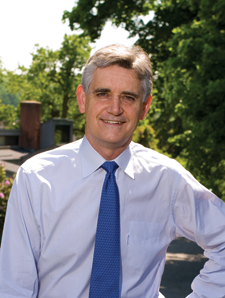
Bruce William Stillman, AO, FAA, FRS is a biochemist and cancer researcher who has served as the Director of Cold Spring Harbor Laboratory (CSHL) since 1994 and President since 2003. He also served as the Director of its NCI-designated Cancer Center for 25 years from 1992 to 2016. During his leadership, CSHL has been ranked as the No. 1 institution in molecular biology and genetics research by Thomson Reuters. Stillman's research focuses on how chromosomes are duplicated in human cells and in yeast Saccharomyces cerevisiae; the mechanisms that ensure accurate inheritance of genetic material from one generation to the next; and how missteps in this process lead to cancer. For his accomplishments, Stillman has received numerous awards, including the Alfred P. Sloan, Jr. Prize in 2004 and the 2010 Louisa Gross Horwitz Prize, both of which he shared with Thomas J. Kelly of Memorial Sloan-Kettering Cancer Center, as well as the 2019 Canada Gairdner International Award for biomedical research, which he shared with John Diffley.
Bernard Nathan Fields was an American microbiologist and virologist. Fields was a member of the National Academy of Sciences.
Leor S. Weinberger is an American virologist and quantitative biologist. He is credited with discovering the HIV virus latency circuit, which provided the first experimental evidence that stochastic fluctuations ('noise') in gene expression are used for cell fate decisions. He has also pioneered the concept of therapeutic interfering particles, or “TIPs”, which are resistance-proof antivirals. His TED talk on this novel antiviral approach 20 years in the making has been called a "highlight" of TED and received a standing ovation from the live audience.

Maurice Green was an American virologist. He is regarded as a pioneer in the study of animal viruses, in particular their role in cancer. Green founded the Institute of Molecular Virology at St. Louis University School of Medicine in the late 1950s, and later served as its chairman.
Asis Datta is an Indian biochemist, molecular biologist and genetic engineer, known for his research on genetically modified foods and food nutritional security. He was the founding Director of the National Institute of Plant Genome Research and is credited with the discovery of genes that assist in extended preservation of fruits and vegetables. He is a recipient of the Shanti Swarup Bhatnagar Award, the highest Indian award and in the Science category, and was awarded the fourth highest civilian award of the Padma Shri, by the Government of India, in 1999. In 2008, he was included again in the Republic Day Honours list for the third highest civilian honour of the Padma Bhushan.
Thomas Charles Merigan was born January 18, 1934 in San Francisco. He is an American virologist and the George E. and Lucy Becker Professor of Medicine, Emeritus at the Stanford University School of Medicine. Merigan's research first focused on human viral pathogenesis, basic and clinical studies of interferon, and then developing the first systemically active antiviral drugs including those effectively treatIng HIV/AIDS, several herpesviruses and hepatitis B. He is also credited with helping to develop the use of interferons as antiviral, immunomodulating and antitumor therapies. Merigan joined the Stanford faculty in 1963 and assumed full emeritus status in 2007. In 2004 he was also identified as one of the 250 most cited investigators in clinical medicine over the last 20 years by the Institute for Scientific Information. Merigan also was ranked 23rd among the 1000 top US microbiologists by Research.com in 2022. His papers have been cited over 45,000 times. He had over 95 postdoctoral fellows, students and visiting scientists with whom he published 577 papers, 24 books monographs and published symposia, and held 11 US patents. Two of his books went into multiple editions- one into a 4th edition and the other into a 3rd. His students have become leaders in the fields of infectious diseases and microbiology both in the US and the world. Seven of his students subsequently joined the Stanford medical faculty. He was a board member of 28 journals and a member of 23 learned societies. He told his life story in a book entitled Pioneering Viral Therapy,a Life in Academic Medicine, published by Amazon/Kindle/CreateSpace in 2017.
Donald "Don" Emil Ganem is an American physician, virologist, professor emeritus of microbiology and medicine, and former global head of infectious disease research at Novartis Institutes for BioMedical Research (NIBR).
Gueh-Djen (Edith) Hsiung was a virologist and professor emeritus of laboratory medicine. She was one of the first women to achieve the rank of professor at the Yale School of Medicine.







